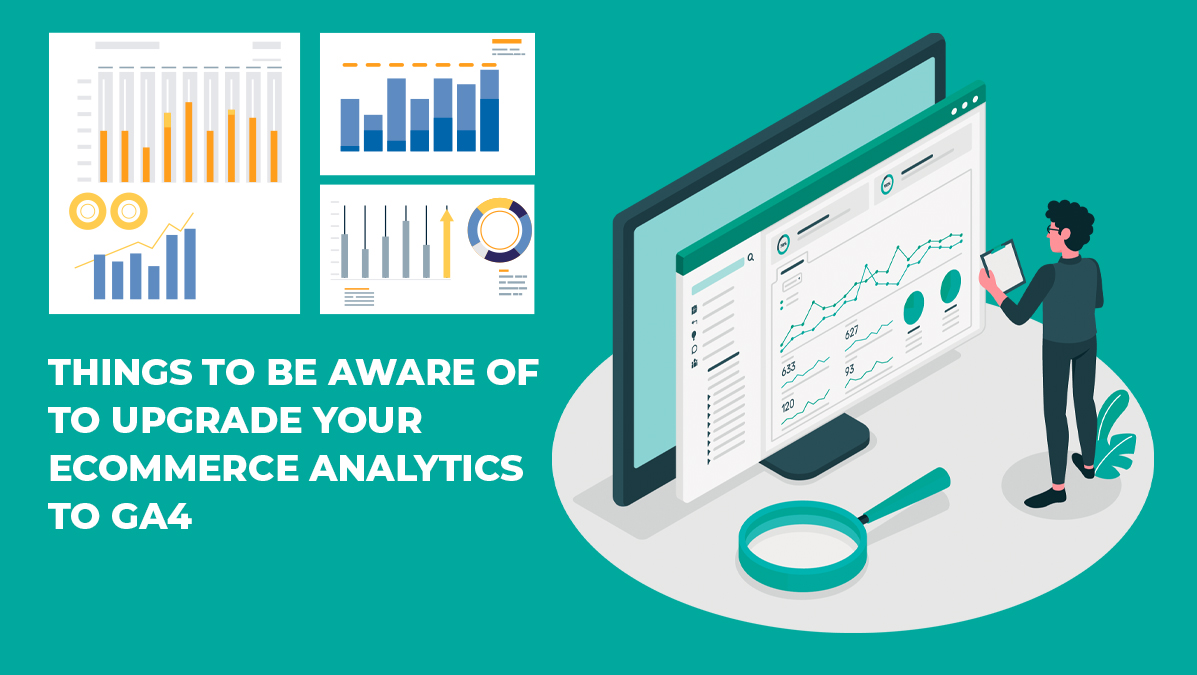Google introduced its new analytics tool named “Google Analytics 4” two years ago. In July 2023, as we know it, Google Analytics will bid goodbye to Universal Analytics. Businesses that have already geared up for the upgrade will be ready for the changeover and won’t lose their analytics or critical marketing reporting.
Key dates to be aware of
Universal Analytics will cease processing new hits on July 1, 2023. This means that no website activity will be recorded after July 2023. Google also announced that existing analytics properties might only be available for six months starting July 1. If you don’t export your historical data, it could disappear forever.
Why is Google getting rid of Universal Analytics?
Universal Analytics was designed to work on web pages and separate sessions. However, GA4 works across the web and applications and doesn’t rely upon cookies. Instead, GA4 uses an event-based approach to provide user-centric analytics. GA4 is more privacy-focused as it does not store an individual’s IP address and is also evolving to meet users’ needs and expectations.
The one drawback that Universal Analytics has is that reports are only based on the user’s actions in a single session instead of including touchpoints on websites or marketing channels. The individual session tracking method has been abandoned in GA4. Google Analytics 4 expands your data tracking options and addresses limitations in Universal Analytics.
We understand that GA4 is still unknown to many businesses, as many need to learn how to create a GA4 property. So here we will show you how to set up a new property, update custom reporting, and learn the process behind GA4 collecting information and reporting on it. To gain insight into the GA4 process and to assist eCommerce businesses in tracking user touch points and converting leads, we recommend merchants create a new GA4 property.
Have you created a plan to update GA4?
Since the end of Universal Analytics is just around the corner, and now is the right time to upgrade GA4, your business can take a hit. The 18th Digitech Marketing team has completed six updates to B2B and B2C eCommerce websites using Adobe Commerce (Magento) and BigCommerce platforms for high-performance industries such as fashion, FMCG, and high-performance POS systems. This post will provide information on how to ensure your GA4 updates are implemented and what skills are required by your marketing and tech team to implement the update. Let’s first look at the highlights and fundamental features that GA4 offers.
What’s new with GA4?
This is just an overview of the security and privacy features that GA4 offers, but there are many other fundamental benefits of GA4 as well.
- Combines data from both apps and websites to understand customer journey better
- It uses event-based data instead of session-based data
- Privacy controls include cookie-less measurement, behavioral and conversion modeling
- New predictive capabilities provide guidance without the need for complex models
- Integrations with media platforms can drive action on your website or app
What are Events?
With GA4, forget about page views and sessions. The new paradigm uses an event-based measurement system that relies on parameters and events as Key Performance Indicators (KPIs). Each activity is now considered an “event”.
Events let you dig deeper into page titles, geographic locations, gender, campaigns, and other details. Google Analytics 4 uses a different data structure than UA, and historical data is not carried over. GA4 must run for at least one month to have enough data to analyze websites. You’ll also need to keep your old Universal Analytics to compare the data and ensure GA4 is tracking the correct data.
Dimensions & Metrics
Google Analytics 4 introduces two new default categories: Dimensions and Metrics. Each dimension can have sub-dimensions and attributes corresponding to 169 predefined categories. The metrics also have sub-metrics for 150 predefined categories. Your marketing analyst can use these 300+ dimensions and metrics to create custom reports. GA4 allows you to create custom dimensions or metrics to meet your business reporting requirements. Custom Data Studio, for example, provides templates that can be used in specific cases. GA4’s power, combined with the flexibility to customize data display results in powerful, at-a-glance reports that will help your business and marketing teams get better results.
Implementation guidelines example [Careful approach]:
Now that we have covered the fundamentals and features of GA4 let’s have a look at how to implement it. These guidelines are 18th Digitech’s best practice approach to implementing GA4 in Adobe Commerce (Magento).
For websites already using Universal Analytics
- To create the GA4 property over UA, use the Setup Assistant.
- You can use the Advanced Options feature to create a property with GA4 or combine it with an existing UA property.
- Remove your UA Account ID from the default Adobe Commerce settings to avoid duplicate UA code firing.
- Warning! Be careful while exporting or importing the JSON file to Google Tag Manager.
- Click merge for the existing container.
- Overwrite to create an empty container.
- To test the implementation, use GTM Preview or GA4 Debug View.
- To review the Tags, Accounts, and data variables in the data layers, use the Google Tag Assistant Tool (Chrome Browser Extension) and Data layer Checker (Chrome Browser Extension).
The skills your team needs to upgrade to GA4
To implement effectively, your technical development and SEO teams must work together. Each team should be familiar with the following tasks and procedures:
- Creating Google Analytics accounts and UA – GA4 Property and Views
- Enhanced Ecommerce Settings, Metrics, Events, Goals, Segments, Funnels
- Creating Google Tag Manager accounts, Containers, Configuration, Tags, and Testing
- Creating Custom Reports
- Weltpixel [UA+ GTM Version] (assuming you’re using this frame)
- Weltpixel [GA4+ GTM Version] (assuming you’re using this frame)
- Mageplaza [UA+GA4 + GTM Version] (assuming you’re using this extension).
- Experience with Magento Backend Interface and Configuration
Finding the Right Google Analytics 4 Implementation Partners
Even though a new GA4 implementation promises enhanced reporting and data analytics customization, it’s crucial to navigate potential complexities before proceeding with the update. Trust 18th Digitech, the best SEO company in India, to support you with your BigCommerce, Shopify, and Adobe Commerce GA4 upgrades. Our adept SEO team excels in tailoring GA4 to monitor website data, gauge conversions, and deliver comprehensive, actionable reports. Reach out to us today for a complimentary, expert consultation with no obligations attached.








 About 18th Digitech
About 18th Digitech Awards and Credentials
Awards and Credentials Our Partners
Our Partners Press/Events
Press/Events
